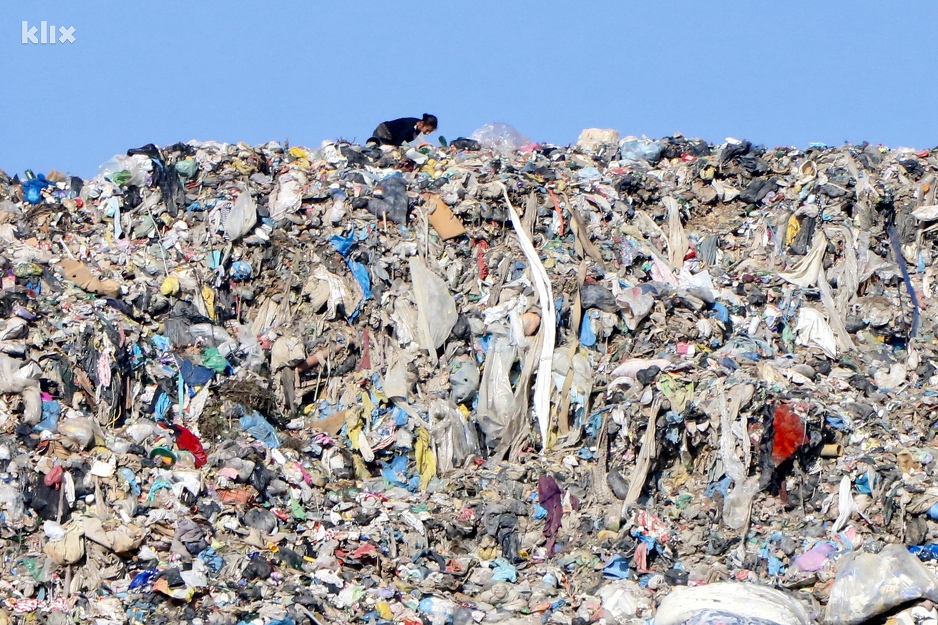The unregulated system of waste collection and disposal is the main reason for the emergence of illegal landfills, which are particularly pronounced in the Tuzla Canton. The solution is to form a regional landfill, but the question is how much local communities can afford such a project. Until the problem is solved, the citizens personally have the opportunity to do a lot.
When it comes to the very beginning of the current situation, in the Tuzla Canton, each city or municipality had its own landfill where waste was legally disposed of. Today, these landfills have already reached its full capacity. Legislation mandates that they must be abolished, and the solution lies in the formation of a regional sanitary landfill for municipal waste.
The story of the formation of a regional landfill at the location of the Lukavacka river in Huskici existed in 2012, but it never came to life. Two years later, the idea of building a regional landfill Eko-Sep came up. However, the deadline for the completion of works has been extended by six months.
“80 percent of the work has already been done, and the most realistic deadline for commissioning, when all the details related to the use permit are considered, would be this fall,” said the director of the Eko-Sep company, Selmir Sljivic.
In order to review what has been done when it comes to the construction of transshipment stations and regional sanitary landfills, the Ministry of Physical Planning and Environmental Protection of Tuzla Canton held a meeting with representatives of the company and government of Gracanica, Gradacac and Srebrenik.
On that occasion, it was said that this landfill would solve the problem of waste disposal for a period of 20 years, but that additional funds are needed to complete the work, which is why it is necessary to include the FBiH Environmental Protection Fund and the Federal Ministry of Environment and Tourism.
The landfill solves one and imposes another problem
Such landfills are the future in Bosnia and Herzegovina, which is supported by the Center for Ecology and Energy. The Center points out that Eko-Sep is an improvement from the environmental side, but it will produce an additional cost for utilities and indirect founders, i.e., municipalities or cities.
“What is a problem, or a challenge, is that our municipalities will have to pay for waste disposal according to the amount of waste, and it seems to me that they are not thinking so sustainably, not taking into account the cost that will be produced. This means that they are not working preventively to reduce the amount of waste, which is why I expect a crisis in all these municipalities”, says the director of the Center for Ecology and Energy Dzemila Agic.
According to our interviewee, municipalities and cities should make waste management plans.
“Everyone must introduce primary waste selection, composting of organic waste, but also think about construction waste, i.e., its sorting. There is no sense in taking such waste, which includes earth, excavations, grass, fruits and trees, to a sanitary landfill, where they will have to pay for everything. It is an expensive landfill on which mixed municipal waste is placed, which is potentially dangerous”, warns Agic.

The unregulated system in municipalities and cities in terms of waste collection and disposal has led to the increasing formation of illegal landfills in Tuzla Canton, which pose a potential risk to public health.
“The ecological consequences are enormous for the environment, because there is mostly mixed and often hazardous waste that pollutes the soil, groundwater and surface water, but also the air at the time of incineration. Also, when you pass by such landfills, it visually bothers you”, adds Agic.
Compost bins in backyards
In Tuzla Canton, approximately 60 percent of citizens pay for waste collection, and all others dump it illegally, whether they burn it, bury it or throw it in illegal landfills.
“This is a problem that must be solved differently, by finding a way for each of the citizens to be introduced into the system of waste collection and paying for waste disposal. One of the models for reducing the formation of illegal landfills is the joint work of communal and environmental inspections that will find and punish the perpetrators”, believes Agic.
Until the system is fully regulated and citizens individually can do a lot to improve the environment and reduce waste, by its proper selection and separation or even composting.
“Every citizen, if he_she has his_her own yard, and cooks a lot of food, which he_she then throws away, can decentrally compost organic waste and thus reduce it. Specifically in Tuzla, we have more than 50 locations where all packaging waste can be disposed of. Everyone can be responsible and separate at least the plastic. Also, everyone at the market knows someone who needs packaging and we can give it away, as well as to someone who is preparing food for winter. In that way, we can do a lot”, concluded Agic.
Source: klix.ba





